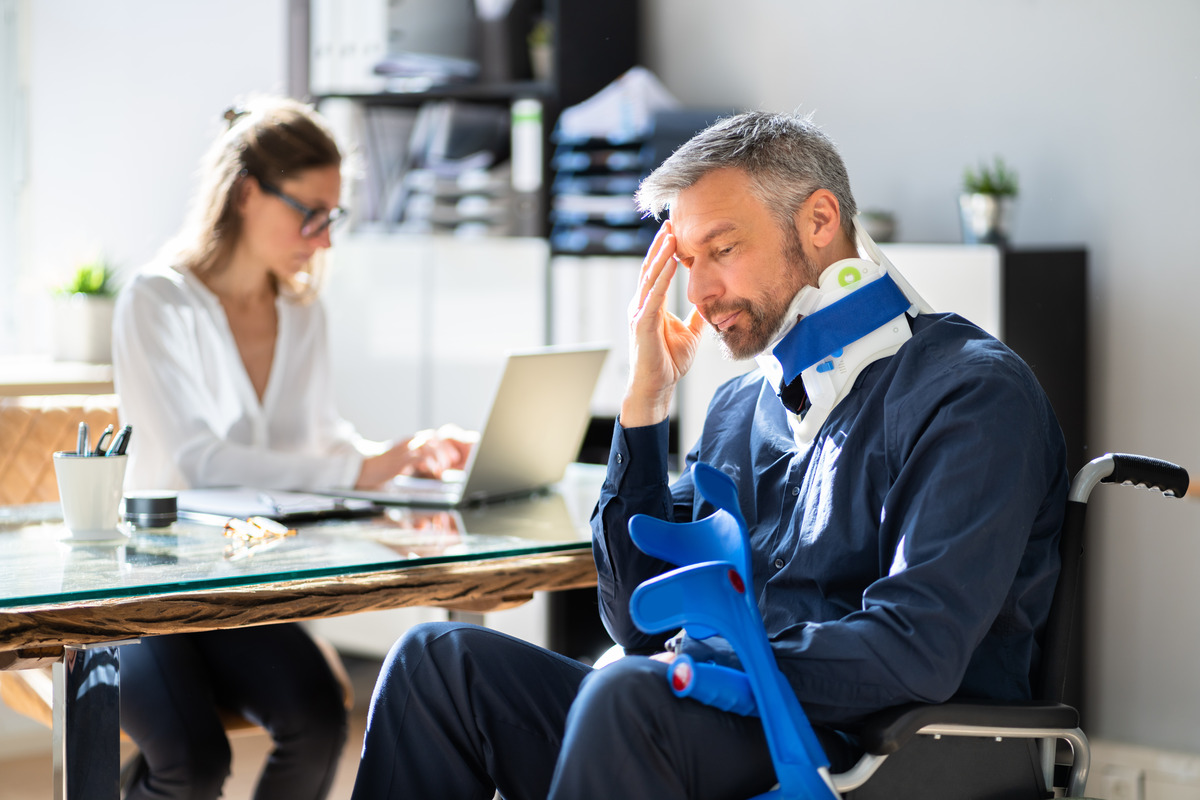Now Reading: How To Find Legal Help After An Unexpected Accident
-
01
How To Find Legal Help After An Unexpected Accident

How To Find Legal Help After An Unexpected Accident
Imagine you’ve just been in a car crash. You’re shaken, injured, and your car is wrecked. Now, you face not just physical pain but the stress of medical bills and confusing insurance claims. You might feel lost, unsure of what to do next, overwhelmed by the legal complexities that loom ahead. It’s a tough spot that many find themselves in after an accident.
This article will guide you through finding the legal help you need, addressing your concerns about costs and disputes, and simplifying the legal maze. It aims to empower you with the knowledge to navigate these challenges effectively.
1. Understanding When You Need Legal Assistance
You might need legal help if you have severe injuries, if there’s a question about who’s at fault, or if you’re battling insurance companies. These are signs that your situation needs a legal expert. They’ll help navigate the complexities that are too much for you to handle alone.
Hiring a lawyer offers immediate advantages. They’ll ensure your claim is evaluated correctly and manage all communications with insurance companies. This means you won’t miss out on the compensation you deserve due to overlooked details or miscommunications.
2. Exploring Your Legal Help Options
There are several types of lawyers who can assist you after an accident. Personal injury lawyers specialize in securing compensation for injury victims. Auto accident lawyers focus on vehicular accident cases. For those unable to afford private legal fees, public legal aid provides necessary services at little or no cost.
To pick the right lawyer, consider the specifics of your accident. Look at the lawyer’s focus and past success with similar cases. This ensures they’re well-equipped to handle your unique situation.
3. Searching For A Qualified Lawyer
Start your search with resources you can trust. National and local bar associations provide comprehensive lists of licensed lawyers and often allow you to filter by specialty, making it easier to find someone experienced in your type of case. For instance, if you need a personal injury lawyer with proven experience in Tuscaloosa, you can use these tools to narrow down your options to attorneys with relevant expertise.
Online directories, such as those maintained by professional legal associations or reputable legal platforms, offer detailed profiles that include areas of practice, years of experience, client reviews, and ratings. Be sure to read reviews carefully, noting any patterns that could indicate the lawyer’s strengths or weaknesses.
Personal referrals remain one of the most reliable ways to find a qualified lawyer. Ask friends, family members, or colleagues who have been through similar legal situations for their recommendations. Their firsthand experience can provide valuable insights into the lawyer’s professionalism, communication style, and effectiveness.
When narrowing down your choices, verify the lawyer’s credentials by checking their license status through the bar association’s website. Confirm they’re in good standing and have no history of disciplinary action. Investigate their track record for handling cases like yours, looking for successful outcomes and relevant case experience. A qualified lawyer should be transparent about their approach and provide clear, informed advice tailored to your specific legal needs.
4. Evaluating Potential Lawyers
During your first meeting, expect to share the specifics of your accident and injuries. Prepare a list of questions to understand their approach. Inquire about their experience with similar cases, their success rates, and how they structure their fees. It’s also vital to ask how they’ll communicate with you throughout the case and what they expect from you as their client.
Compatibility with your lawyer is key. Assess if they’re attentive and responsive to your concerns. A good lawyer should explain legal processes in clear terms and tailor their strategy to meet your specific needs and expectations. This alignment ensures they’re truly advocating for your best interests.
5. Making An Informed Decision
Familiarize yourself with common fee structures before you commit. Contingency fees mean you pay only if you win, making them popular for accident cases. Hourly rates charge you based on the time your lawyer spends on your case, regardless of the outcome. Flat fees are predetermined amounts charged for specific services, providing clarity from the start.
When finalizing your choice of lawyer, consider several key factors. Evaluate their communication style to ensure it meshes with your preferences. Review their legal strategies to see if they align with your objectives.
Examine client reviews to gauge their effectiveness and reliability. Also, check their availability and willingness to pursue your case aggressively. This comprehensive checklist will help you make an informed decision that aligns with your needs.
Conclusion
Finding the right legal help after an accident is crucial. It can significantly reduce your stress and ensure you receive the compensation you deserve. A qualified lawyer will navigate the complexities of your case, allowing you to focus on recovery.
Stay informed about your legal rights and the latest in personal injury law, even if you’re not currently in a dispute. Regularly review your insurance policies and stay aware of safety regulations. These preventive measures can protect you from future legal troubles.
Take proactive steps to find reliable legal assistance. Being prepared can make all the difference when facing unexpected accidents. Act now to safeguard your rights and secure your future.










